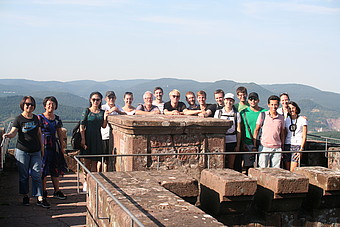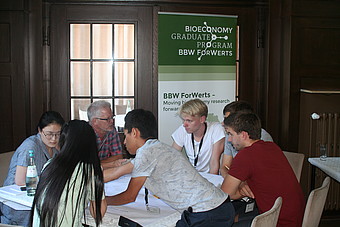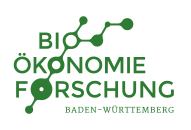BBW ForWerts Summer School 2019
Towards Decentralized Bioeconomies – Concepts and Implementation Strategies


Like the two previous years, our summer school 2019 was again held at the beautiful location of Annweiler-Trifels (Palatinate). The key topic, i.e. how bioeconomy concepts have to be adapted to regional circumstances, was addressed from three national perspectives: Colombia, China and Germany.
Key lectures provided insight into
- The development of local mixed academic-private cluster structures in Colombia (Prof. Zaida Lentini, ICESI University, Cali, Colombia)
- The role of lignocellulose-based bioenergy and novel regional exploitation strategies for under-forestry bioresources in China (Prof. Liangcai Peng, Huazhong Agricultural University, Wuhan, China; Prof. Yujie Fu, Northeast Forestry University, Harbin, China)
- The logistic challenges of regional biomass provision and processing in Germany (Prof. Nicolaus Dahmen, KIT; Prof. Ralf Kindervater, BIOPRO Baden-Württemberg GmbH)
- The normative challenges for implementing bioeconomy as a responsible innovation strategy (Prof. Andreas Pyka, University of Hohenheim)
For the PhD students, this intense interdisciplinary and international exchange of viewpoints generated a highly stimulating communication platform. Together with three invited PhD students from Colombia, BBW ForWerts PhD students actively contributed to the outcome of this year’s summer school.
With their creative input they helped to prepare the BioGeCo workshop (Bioeconomy-Germany-Colombia; Cali, planned for November 2019), organized by Natalia Matiz Rubio (University of Stuttgart).
Furthermore, in mixed interdisciplinary/international group work, creative proposals were developed for start-up companies and social entrepreneurship initiatives, presented in excellent pitches at the end of the summer school.
While the ambient temperature raised to 39°C during the week, this did in no way keep the PhD students from hard working and efficient networking. The critical and largely positive feedback from all participants as collected by a survey at the end of the summer school will help to further develop this highly interactive format, which also impressed our Colombian and Chinese partners.

